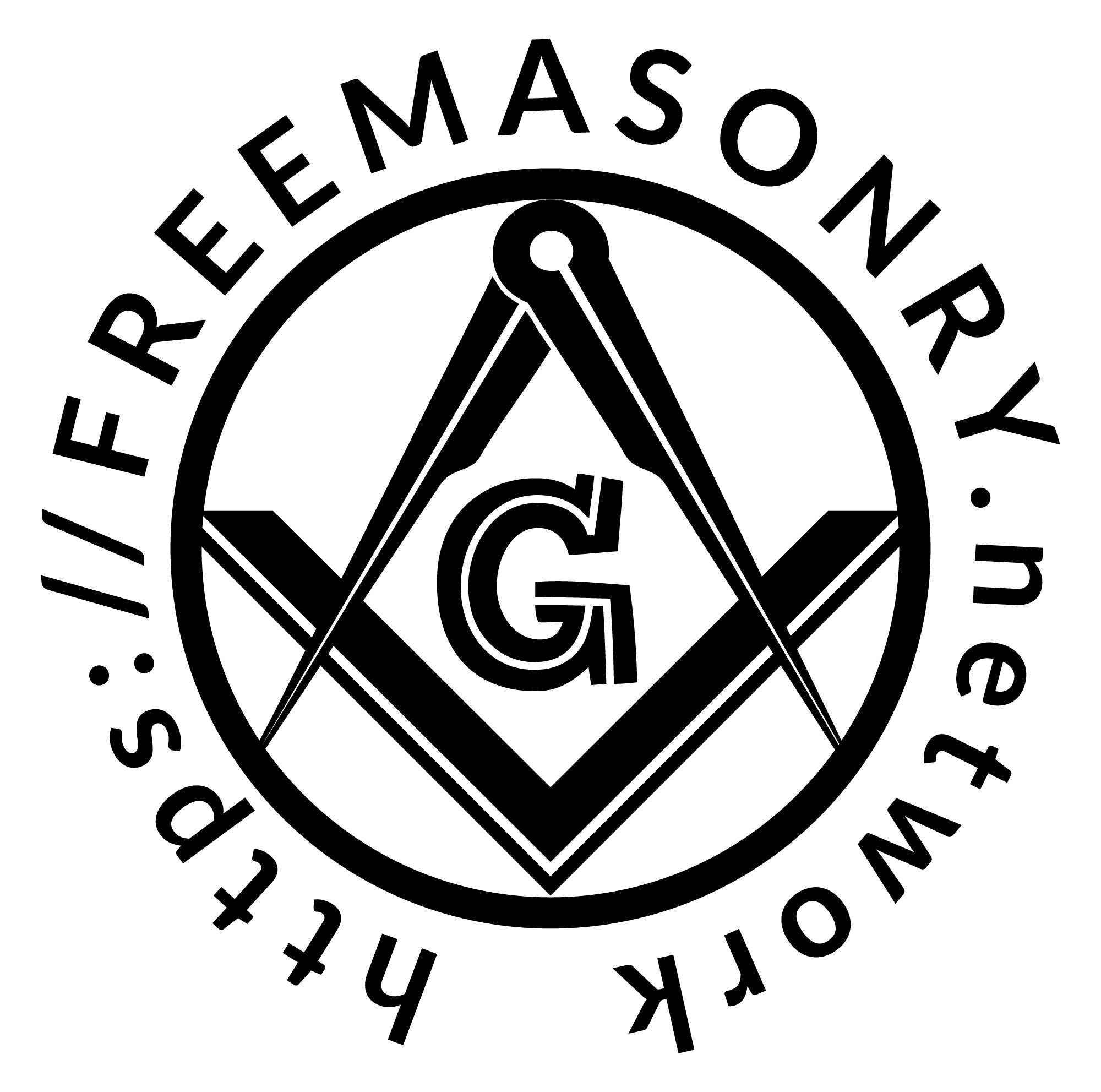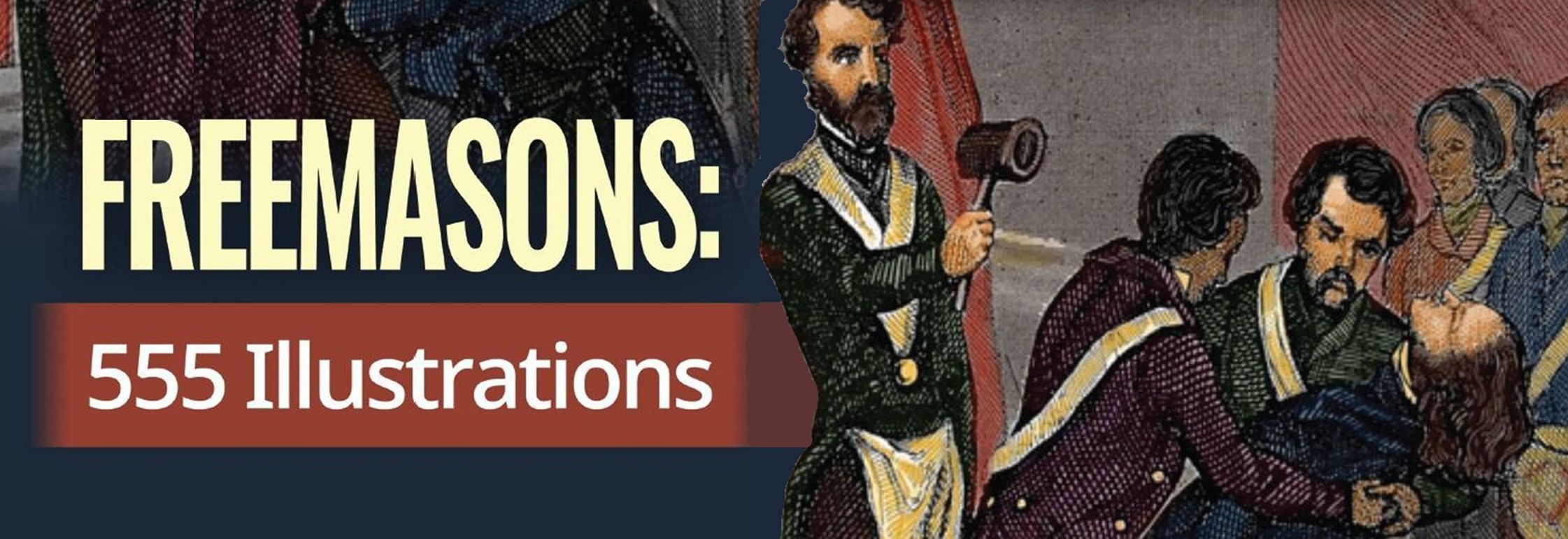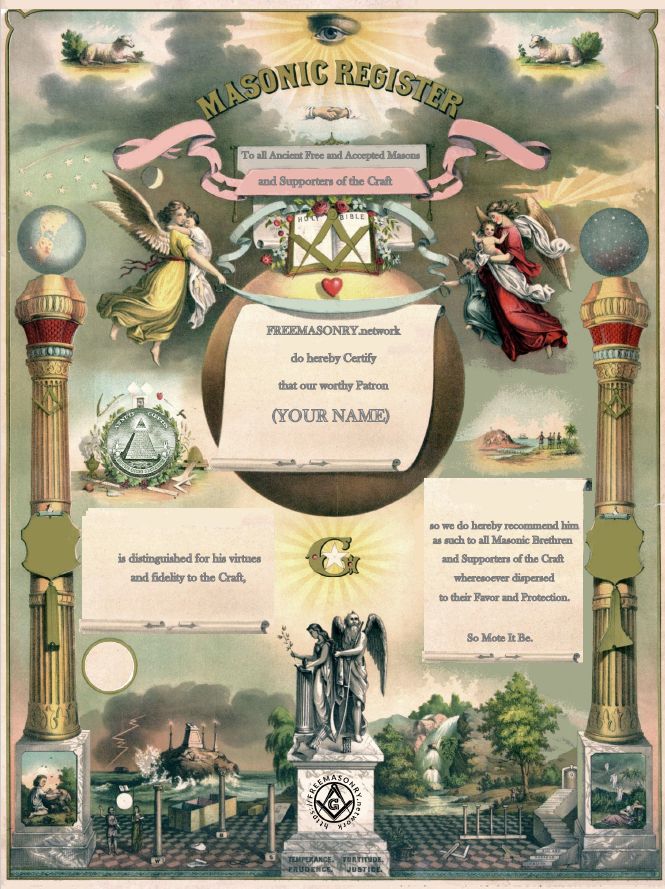The search for the etymology or derivation of the word Mason has given rise to numerous theories, some of them ingenious, but many of them very absurd. Thus, a writer in the European Magazine for February, 1792, who signs his name as “George Drake,” Lieutenant of Marines, attempts to trace the Masons to the Druids, and derives Mason from May’s on, May’s being in reference to May-day, the great festival of the Druids, and on meaning men, as in the French on dit, for homme dit. According to this, May’s on therefore means the Men of May. This idea is not original with Drake, since the same derivation was urged in 1766 by Cleland, in his essays on The Way to Things in Words, and on The Real Secret of Freemasons.
Hutchinson, in his search for a derivation, seems to have been perplexed with the variety of roots that presented themselves, and, being inclined to believe that the name of Mason “has its derivation from a language in which it implies some strong indication or distinction of the nature of the society, and that it has no relation to architects,” looks for the root in the Greek tongue. Thus he thinks that Mason may come from Mao Soon, “I seek salvation,” or from Mystes, “an initiate”; and that Masonry is only a corruption of Mesouraneo, “I am in the midst of heaven”; or from Mazourouth, a constellation mentioned by Job, or from Mysterion, “a mystery.”
Lessing says, in his Ernst und Falls, that Masa in the Anglo-Saxon signifies a table, and that Masonry, consequently, is a society of the table.
Nicolai thinks he finds the root in the sow Latin word of the Middle Ages Massonya, or Masonia, which signifies an exclusive society or club, such as that of the Round Table.
Coming down to later times, we find Brother C. W. Moore, in his Boston Magazine, of May, 1844, deriving Meson from Lithotornos, a Stone Cutter. But although fully aware of the elasticity of etymological rules, it surpasses our ingenuity to get Mason etymologically out of Lithotomos.
Brother Giles F. Yates sought for the derivation of Mason in the Greek word Mazones, a festival of Dionysus, and he thought that this was another proof of the lineal descent of the Masonic Order from the Dionysiac Artificers.
Brother William S. Rockwell, who was accustomed to find all his Freemasonry in the Egyptian Mysteries and who was a thorough student of the Egyptian hieroglyphic system, derives the word Mason from a combination of two phonetic signs, the one being Mai, and signifying to love, and the other being Son, which means a brother. Hence he says, “this combination, Mason, expresses exactly in sound our word Masons and signifies literally loving brother, that is, philadelphust brother of an association, and thus corresponds also in sense.”
But all of these fanciful etymologies, which would have terrified Bopp, Grimm, or Muller, or any other student of linguistic relations, forcibly remind us of the French epigrammatist, who admitted that alphna came from equus, but that, in so coming, it had very considerably changed its route.”
What, then, is the true derivation of the word Mason? Let us see what the orthoepists, who had no Masonic theories, have said upon the subject.
Webster, seeing that in Spanish masa means mortar, is inclined to derive Mason, as denoting one that works in mortar, from the root of mass, which of course gave birth to the Spanish word. In Low or Medieval Latin, Mason was machio or memo, and this Du Cange derives from the Latin maceria, a long wall. Others find a derivation in machinoe, because the builders stood upon machines to raise their walls. But Richardson takes a commonsense view of the subject.
He says, “It appears to be obviously the same word as maison, a house or mansion, applied to the person who builds, instead of the thing built. The French Maisoner is to build houses; Masonner, to build of stone. The word Mason is applied by usage to a builder in stone, and Masonry to work in stone.”
Carpenter gives Massom, used in 1225, for a building of stone, and Massonus, used in 1304, for a Mason; and the Benedictine editors of Du Cange define Massoneria “a building, the French Maconnerie, and Massonerius,” as Latomus or a Mason, both words in manuscripts of 1385. Doctor Murray, in the New English Dictionary, says of the word Mason: “the ulterior etymology is obscure, possibly the word is from the root of Latin maceria, a wall.
As a practical question, we are compelled to reject all those fanciful derivations which connect the Freemasons etymologically and historically with the Greeks, the Egyptians, or the Druids, and to take the word Mason in its ordinary signification of a worker in stone, and thus indicate the origin of the Order from a society or association of practical and operative builders. We need no better root than the old French and Latin Maçonner, to build, or Maçonetus, a builder (see Freemason and Maçon).
the source: Mackey’s Encyclopedia of Freemasonry














